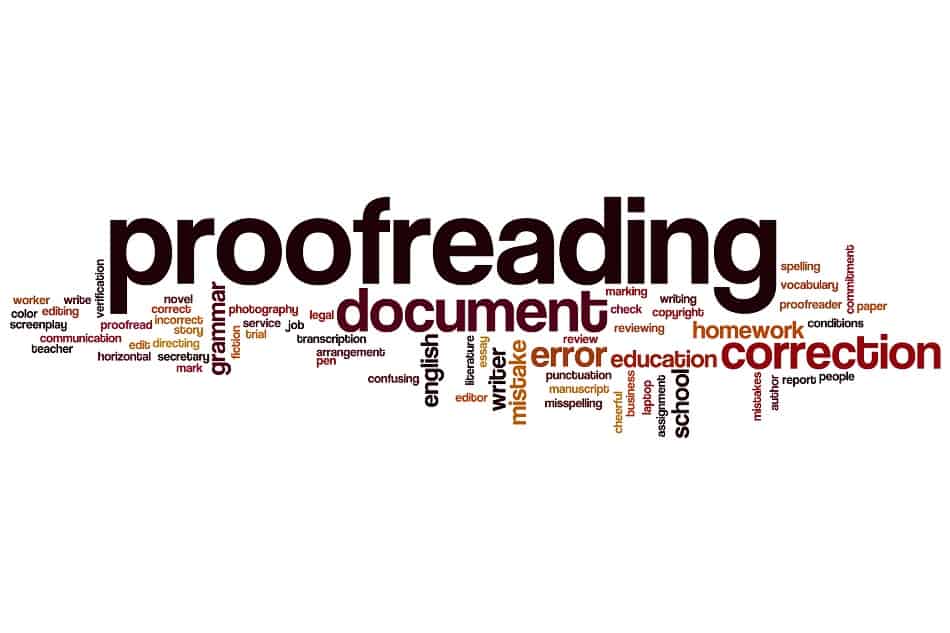Avoiding Common Errors In Dissertation Writing
Avoiding Common Errors In Dissertation Writing One of the most difficult academic assignments you may encounter during your academic career is writing a dissertation.
It calls for careful preparation, in-depth study, and conscientious time management. Nevertheless, a lot of students run across typical dissertation problems that make it harder for them to succeed and lower the caliber of their work. Despite being preventable, these errors frequently occur as a result of poor knowledge or expertise with the dissertation process.
1. Poor Planning and Lack of Time Management
Perhaps the most significant mistake students make when writing their dissertation is failing to properly plan and manage their time. Writing a dissertation is a long-term project that requires careful organization from start to finish. The first step in avoiding poor planning is creating a realistic timeline for the entire process.
How to Avoid This Mistake:
- Set Clear Milestones: Break the dissertation into smaller, manageable tasks, such as literature review, data collection, analysis, and writing each chapter. Assign deadlines for each milestone and stick to them.
- Create a Detailed Schedule: Use calendars or project management tools like Trello or Asana to keep track of progress. Allocate enough time for research, writing, revising, and proofreading.
- Prioritize Tasks: Work on the most critical sections first, and avoid leaving large chunks of writing until the last minute. For example, set aside ample time for data analysis or complex theory-heavy sections.
Time management is crucial because the dissertation process often takes longer than anticipated. Procrastination can lead to rushed writing, poor quality, and an incomplete final product. Plan ahead and be realistic about how much time each task will take.

2. Inadequate Research and Insufficient Literature Review
A dissertation is grounded in research. Yet, some students fail to conduct thorough research, either by not engaging critically with existing literature or by relying on outdated or irrelevant sources. An inadequate literature review can severely undermine the quality of your dissertation and weaken your argument.
How to Avoid This Mistake:
- Comprehensive Literature Review: Take the time to thoroughly review the current state of research in your field. Don’t just summarize existing work—critically analyze it, highlighting gaps, contradictions, and areas for future research.
- Use Credible Sources: Focus on peer-reviewed journals, academic books, and reputable sources. Be cautious of using unreliable websites or non-academic sources unless they directly contribute to your research.
- Stay Current: Ensure that the research and references you use are up to date, especially in fields that evolve quickly. Review the most recent studies and publications relevant to your topic.
A strong literature review demonstrates your knowledge of the field and positions your dissertation within the existing academic conversation. It also forms the foundation for your research question, helping you build a clear and relevant argument.
3. Weak Thesis Statement or Research Question
A common mistake is to start writing without clearly defining the research question or thesis statement. Without a focused question or hypothesis, the dissertation lacks direction and purpose, leading to meandering arguments and irrelevant information.
How to Avoid This Mistake:
- Formulate a Clear Research Question: Your research question should be specific, focused, and feasible. It should be narrow enough to be answered in-depth but broad enough to allow for a comprehensive investigation.
- Develop a Strong Thesis Statement: Your thesis statement should clearly present the argument or position you will defend in your dissertation. This statement will guide your research and writing and should be reiterated in each section.
- Refine Your Focus: Continuously refine your research question as your dissertation progresses. It should evolve as you gain new insights from your research and literature review.
A well-defined research question and thesis statement will keep your dissertation focused, ensuring that each section contributes to answering your main inquiry.
4. Lack of Coherence and Structure
A dissertation that lacks a logical structure can be difficult for readers to follow. Jumping between topics or failing to clearly link each section can confuse your audience and detract from the quality of your argument.
How to Avoid This Mistake:
- Create an Outline: Develop a clear outline before you begin writing. Include headings for each section, along with bullet points or notes outlining the content for each part.
- Logical Flow: Each chapter should logically flow into the next. Be sure to introduce new sections with a brief summary of the previous one to guide readers.
- Subheadings and Paragraph Structure: Use subheadings to break up long sections and guide the reader. Each paragraph should start with a clear topic sentence, followed by supporting evidence and analysis.
A well-structured dissertation will guide readers through your arguments and ensure that your points are presented in a coherent and engaging manner.
5. Ignoring Feedback and Not Seeking Help
Many students make the mistake of assuming they should be able to write their dissertation independently, without seeking feedback or help. This can result in missed opportunities to improve the quality of the work and address weaknesses in argumentation or methodology.
How to Avoid This Mistake:
- Consult Your Supervisor Regularly: Schedule regular meetings with your supervisor to discuss progress, clarify any uncertainties, and receive feedback on your research and writing.
- Peer Reviews: Don’t hesitate to ask peers or colleagues for feedback. Fresh eyes can offer constructive criticism that you might overlook.
- Seek Professional Help: If needed, consider hiring a professional editor to review your work for grammar, style, and structure.
Feedback is invaluable and can help you identify areas for improvement before submission. Incorporating suggestions from your supervisor or peers can strengthen your dissertation and ensure it is at its best.
6. Failing to Proofread and Edit
Many students underestimate the importance of proofreading their dissertation. A dissertation filled with spelling, grammar, or formatting errors can negatively impact its quality and professionalism. A final draft should be polished and free of errors to make a positive impression on examiners.
How to Avoid This Mistake:
- Proofreading: After completing your dissertation, take the time to proofread it multiple times. Read it aloud to catch errors you might miss when reading silently.
- Peer Review: Have someone else review your work for clarity, coherence, and grammar.
- Take Breaks Between Edits: After writing, take a break before proofreading to approach your work with fresh eyes.
- Use Tools: Tools like Grammarly, Hemingway, or a spell checker can help spot basic errors, but don’t rely on them entirely.
Proofreading and editing can drastically improve the quality of your dissertation, ensuring that your arguments are clear and free from distracting mistakes.
7. Overlooking Citation and Academic Integrity
Incorrect citation is a common mistake that can have severe consequences for academic integrity. Plagiarism, whether intentional or accidental, can damage your reputation and even result in academic penalties.
How to Avoid This Mistake:
- Follow Citation Guidelines: Always use the appropriate citation style (APA, MLA, Chicago, etc.) for your dissertation. Stick to it consistently throughout the document.
- Use Citation Tools: Reference management tools like Zotero or EndNote can help you organize and format citations and references.
- Avoid Paraphrasing Too Closely: When paraphrasing, ensure that the text is substantially rewritten. Even if you paraphrase, proper citation is necessary.
Maintaining academic integrity is paramount. By correctly attributing the work of others and following citation rules, you demonstrate respect for the intellectual property of others and uphold the credibility of your research.

Conclusion:
Dissertation writing is a challenging but worthwhile undertaking. You can greatly raise the caliber of your dissertation and your chances of success by avoiding the typical errors covered in this article, which include inadequate planning, poor research, unclear focus, lack of structure, inability to seek input, and disregarding proofreading. The secret is to remain organized, ask for criticism frequently, efficiently manage your time, and keep a laser-like concentration on academic integrity.
Writing a dissertation might be a daunting undertaking, but it’s also a chance to show off your research abilities, advance scholarly understanding, and establish your subject-matter competence. You can create a dissertation that not only satisfies departmental requirements but also makes a significant contribution to your field of study with careful planning, hard effort, and a dedication to avoiding typical mistakes.
(FAQ)
1. What are the most common mistakes students make when writing a dissertation?
The most common mistakes include poor planning, weak research, unclear thesis statements, lack of structure, and failing to proofread or seek feedback.
2. How do I ensure my dissertation has a clear structure?
Start with a detailed outline that covers each chapter and key sections. Make sure each chapter logically follows the previous one, maintaining a cohesive flow of ideas.
3. How can I manage my time effectively during the dissertation process?
Break the dissertation into smaller, manageable tasks with clear deadlines. Use tools like project management apps to stay on track, and set aside dedicated time each day for research and writing.
4. How can I avoid plagiarism?
Always cite your sources correctly, paraphrase carefully, and use plagiarism detection tools to check your work before submission.
5. How can I improve my dissertation after receiving feedback?
Take feedback seriously and revise accordingly. Address any areas of weakness and strengthen your argument based on suggestions from your supervisor or peers.
6. Should I get professional help for proofreading my dissertation?
While it’s not strictly necessary, having a professional editor review your dissertation can help you catch errors, refine your arguments, and ensure your writing is clear and polished.
7. How important is the literature review in my dissertation?
The literature review is crucial as it situates your research within the existing body of work. It provides the context for your study and helps establish the need for your research.
8. How do I create a strong thesis statement?
Your thesis statement should clearly define your research question or argument. It should be specific, focused, and outline the purpose of your dissertation.
9. Can I submit my dissertation without external feedback?
It’s highly recommended to seek feedback from your supervisor, peers, or colleagues before submission. Fresh perspectives can help identify areas for improvement.
10. How can I make sure my dissertation is free from grammatical and structural errors?
Take the time to proofread your dissertation multiple times, use grammar-check tools, and ask others to review it for clarity and consistency.
















